Expecting a baby or becoming a new parent isn’t always associated with feelings of joy – you are bound to experience difficult times too. What’s important is how you cope and get through those times, and to know you’re not alone.
Perinatal Mental Health Awareness Week, which runs from November 8-14, 2020, highlights how it’s important for everyone to start listening to what’s not being said by expectant and new parents.
What does perinatal mean?
Perinatal anxiety and depression are common health conditions that affect people who are expecting or have recently had a baby. It can also affect non-birth parents. Perhaps you’ve heard of the terms postnatal or postpartum anxiety and depression, which can develop up to a year after birth. Or you may have heard about antenatal anxiety and depression which can happen during pregnancy. When we talk about perinatal anxiety and depression, we are talking about the whole journey, and all of the above-mentioned conditions that can develop.
While these conditions are temporary and treatable, unfortunately not everyone gets help when they need it.
There has long been a stigma around mental health especially in parenting. Unfortunately, that stigma still exists, which means many parents may silently struggle. Social media exposure – seeing picture-perfect experiences of families who appear to cope with parenting so effortlessly – only exacerbates the problem.
These statistics may even come as a surprise to anyone scrolling through their Instagram feed. According to the Gidget Foundation Australia:
- About one in five new mums and one in 10 new dads will experience perinatal depression and anxiety.
- Perinatal depression and anxiety costs Australia $877 million annually, according to a recent analysis prepared for four leading perinatal mental health consumer organisations.
There is a huge expectation in our society for parents to have it all together. This isn’t new. But what if you’re not feeling happy or okay?
Recognising the signs and getting help
Each year in Australia almost 100,000 people experience perinatal anxiety or depression. As mentioned, it can happen about the time a baby is born, or during pregnancy or may develop after baby is born. It’s important to know it is very common and there is support available.
If perinatal anxiety or depression is left untreated it can have a devastating impact on parents, partners babies and the rest of the family and in the worst cases it can even put lives at risk.
Feeling teary, anxious or irritable in the first few days or weeks after birth is common and is often referred to as the “baby blues”. However, when a low mood or feelings of anxiousness start to cause concerns or stop an expecting or new parent from functioning normally for more than two weeks, they may be experiencing perinatal anxiety or depression.
Here is a general guide, however please see your doctor for a confidential discussion. There are also some helpful resources listed for more information at the end of this article.
- Depression is often associate with a low mood, sadness, hopelessness, or withdrawal.
- Anxiety, in general terms, refers to an aroused mood – panic, agitation, frustration or anger.
For more detail about the symptoms to look out for, a good article to read is here: Perinatal Anxiety & Depression Australia (PANDA)
Being aware of postnatal psychosis
Postnatal psychosis is a rare but serious illness that affect one to two mums in every 1000 and can put both mother and baby at risk. It almost always requires hospital admission. Symptoms often happen suddenly and can include extreme mood swings, significant behaviour changes and loss of touch with reality. If you suspect a new mum may have postnatal psychosis, you can take her to a doctor, the nearest hospital emergency department, or call PANDA’s National Helpline – 1300 726 306.
Raising awareness about Perinatal Mental Health
If you’re interested in raising awareness about Perinatal Mental Health Awareness and supporting the Gidget Foundation, click here to discover how you can host a 2020 “Bun in the Oven” event.
Where can I find more support and resources about perinatal conditions?
- COPE (Centre of Perinatal Excellence)
- Gidget Foundation Australia
- Perinatal Anxiety & Depression Australia (PANDA Australia)
- Peach Tree Perinatal Wellness
- Perinatal Wellbeing Centre
Sources:
- Gidget Foundation Australia (Perinatal Mental Health Awareness Week)
- Perinatal Anxiety & Depression Australia (PANDA)
- Beyond Blue
